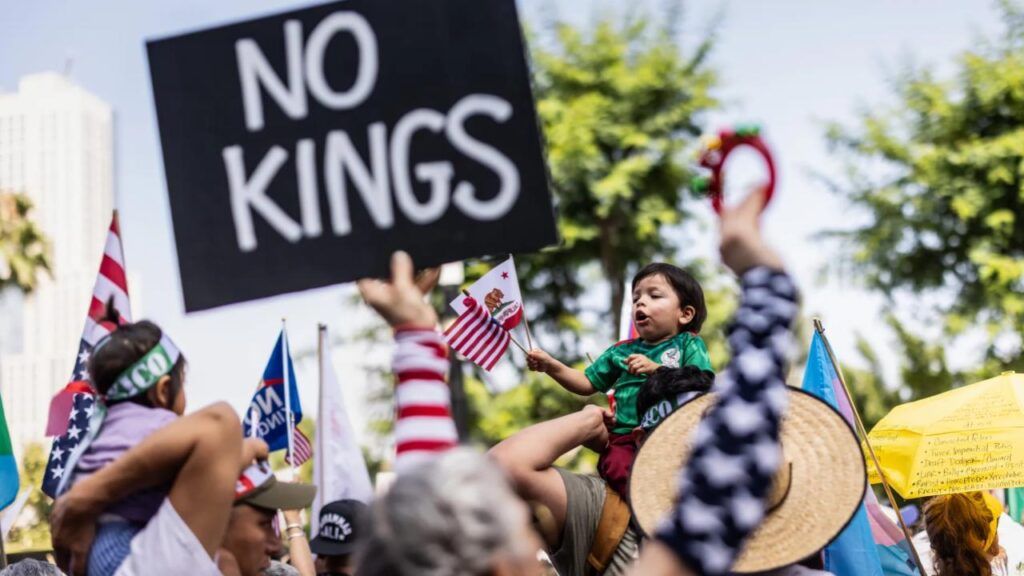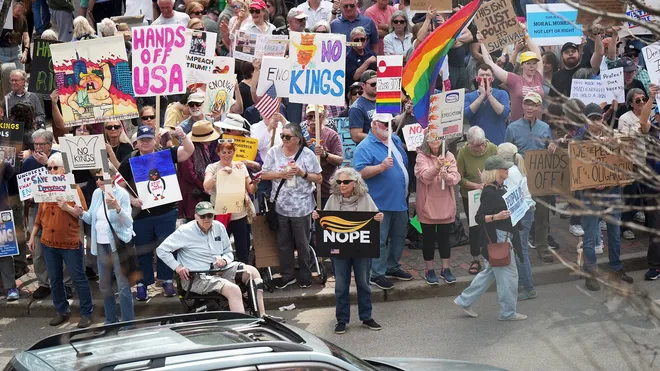When protestors flood the streets again on July 17, they won’t just be marching—they’ll be making a statement tied to a legacy. The “No Kings” movement, fresh off a massive global turnout on June 14, is gearing up for what organizers say could be the most consequential day yet in their push for justice, voting rights, and democratic reform.

This next wave of action isn’t just another rally. It’s a targeted political maneuver with deep historical symbolism and a bold new strategy—set for a day that honors civil rights icon John Lewis, who died on July 17, 2020.
Inside the ‘No Kings’ Protest’s Bold New Plan
| Takeaway | Stat/Fact |
|---|---|
| Largest coordinated protest of 2025 | 5 million people in 20+ countries joined “No Kings” on June 14 |
| July 17 chosen for symbolic power | Marks John Lewis’s death, linking legacy to action |
| Focus shift from spectacle to strategy | Organizers planning voter drives, lobbying |
The “No Kings” movement isn’t fizzling—it’s evolving. By marking July 17 as a day of action, not just remembrance, activists are betting big that sustained engagement can move the needle on everything from voter suppression to racial equity. In the words of John Lewis: “Get in good trouble, necessary trouble.” And this summer, millions plan to do just that.
Why July 17 Is More Than a Date
The decision to anchor the next major action on July 17 is no accident. It’s a tribute to John Lewis, the late Georgia congressman and lifelong activist for civil rights and voting access.
“This isn’t just about marching. It’s about movement,” said Barbara Arnwine of the Transformative Justice Coalition, which is co-organizing the event. “By choosing July 17, we’re connecting today’s struggle to the giants who walked before us.”
It’s also a political counterweight to Donald Trump’s return to the campaign trail. While Trump rallied his base with pageantry and speeches, “No Kings” intentionally avoided Washington, D.C., on June 14—opting instead for grassroots events in 2,100 locations across the globe.
What’s on the Agenda?
This time around, organizers are drilling into three core demands:
- Voting Rights – Defending ballot access amid escalating state-level restrictions.
- Racial Justice – Highlighting inequities in policing, housing, and education.
- Defending Democracy – Countering disinformation and protecting fair elections.

Expect major rallies in cities like Philadelphia, Detroit, and Atlanta, as well as smaller gatherings and teach-ins from community groups, churches, and schools. According to Indivisible, a leading organizer, the emphasis is on peaceful protest—“with speakers, songs, and family-friendly energy.”
From Protest to Power
What makes this next step significant is its pivot from protest to political action. Groups like Indivisible and MoveOn aren’t just mobilizing signs—they’re mobilizing voters.
According to Indivisible’s co-founder Leah Greenberg, the July 17 campaign will include:
- Phone banks targeting key swing states
- Local ballot initiatives on voting rights
- Direct lobbying of congressional leaders
I’ve been involved in several voter registration drives since 2020, and there’s a difference when you pair civic education with passionate protest. People leave inspired—and informed.
Global Eyes, Local Power
The June 14 turnout stunned even the most seasoned activists. With over 5 million participants in more than 20 countries, it marked one of the largest synchronized protest efforts of the decade.
That momentum, organizers say, is both a blessing and a challenge. “We don’t want to lose steam,” said Arnwine. “But we also need to deepen our impact. That’s what July 17 is for.”
What You Can Do Now
Ready to plug in? Here are a few steps:
- Check Local Listings: Visit Indivisible.org or MoveOn.org for city-specific events.
- Volunteer: Many groups need marshals, medics, and social media liaisons.
- Donate: Support the Transformative Justice Coalition or 50501 to keep grassroots work going.
- Stay Educated: Join webinars or teach-ins to learn how voting laws are shifting in your state.






